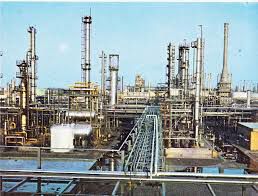BRITAIN AND THE AFTERMATH OF THE ANGLO–IRANIAN OIL COMPANY’S CRISIS

In 1951 the Iranian Government nationalised the Anglo-Iranian Oil Company. The nationalisation took place when the Labour Government of 1945-51 was still in office.
The nationalisation of the Anglo-Iranian Oil Company, eventually, led to the United States acquiring a substantial share in Iranian oil in what used to be called the Anglo-Iranian Oil Company, the main British interest in the Persian Gulf. America clearly moved into the British sphere of influence, the Persian Gulf.
Therefore, the British position in the Persian Gulf by the middle of the twentieth century, in the aftermath of the Anglo-Iranian Oil Company’s crisis, was being challenged by the United States.
This article will explain how the British Government in the aftermath of the nationalisation of the Anglo-Iranian Oil Company, the major British interest in the Persian Gulf, sought to safeguard the strategic, and national interest of Great Britain in the Persian Gulf, in the context of the rising power of the United States.
The American Perspective
In 1954, a year after the Iranian Prime Minister, Dr. Musaddiq, was overthrown, Sir Roger Makins, the British Ambassador to Washington, wrote:
The Americans are out to take our place in the Middle East. Their influence has greatly expanded there since the end of the Second World War, and they are now firmly established as paramount foreign influence in Saudi Arabia. They are gaining ascendancy in Persia.¹
Britain’s economic weakness, which prevented her from keeping up with military, and especially atomic weapons technology, and fear of the communist threat to her interests in the Persian Gulf, persuaded the British Government both for economic and defensive reasons to come in to alliance with the United States. In the opinion of the British Government some division of labour for the safeguarding of British interests in the Persian Gulf, in view of the limited range of British action because of the weakening British position, became necessary. British interests in the Persian Gulf as well as 40% share in the international oil consortium in Iran being,
(a): 50% of British consumption of oil came from Kuwait;
(b): to provide a barrier to the spread of Communism²
As the United States was the only country which could withstand the Soviet Union and communist pressure, it was clear to the British Government that the United States should take the lead.
-
- PRO, London, CAB 129/66 C (54) 53, Middle East: Anglo-American Policy, letter to Foreign Office1 on policy in the Middle East, from Sir Roger Makins, the British Ambassador to Washington, Secret, 25th January, 1954,
- B. BURROWS, Footnotes in the Sand: The Gulf in Transition, 1953-1958, (London: Michael Russell, 1990), p. 135.



